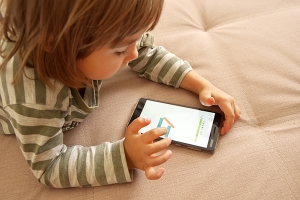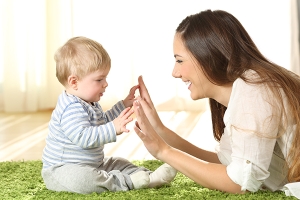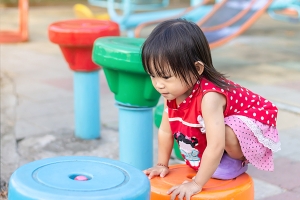
One of the biggest concerns of parents in challenging times is how to help kids cope with disappointment and frustration of life turned upside down. “My son has so many questions and emotions that I don’t always know how to handle,” says Encinitas mom Katie Andrews. “He’s only 8 years old—I just wish he didn’t have to worry about any of it.”
It’s natural to want to shield children from harsh realities, and it’s a parent’s job to make sure kids feel safe and secure while navigating the difficulties of COVID. But with every crisis comes an opportunity, according to John Gottman, Ph.D. and author of Raising an Emotionally Intelligent Child.
“Negative experiences,” says Gottman, “can serve as superb opportunities to empathize, to build intimacy with our children, and to teach them ways to handle their feelings.”
Without diminishing the severe strain of the pandemic, it’s reassuring to know that there can be a silver lining while we wait out current restrictions. Here’s how to use this time to help children grow important emotional skills that will serve them well in life (resilience, empathy, patience and compassion).
Focus on connecting. Disrupted routines, loneliness and boredom make solid family relationships more vital than ever to help kids feel safe, secure and loved. Make connecting a priority by focusing on communication and quality time.
Try starting each day with a quick family check-in. Ask each person what they’re looking forward to that day. Short breaks throughout the day (playing, reading, going outside for fresh air) can boost a child’s sense of safety and security.
Consider having a weekly family meeting in which each child shares a goal or accomplishment and their greatest challenge of the week. Brainstorm how family members can support one another, then wrap up with something fun like a poem, song or story.
Practice naming feelings. Helping kids name and understand their feelings provides the ability to self-soothe and handle negative emotions productively. According to Gottman, labeling big feelings like anger, sadness and fear helps kids understand that everyone experiences these emotions and can handle them. For help with naming emotions, read picture books and try using an emotions wheel or feelings thermometer (found easily online).
Books that help kids understand emotions:
The Way I Feel by Janan Cain
The Feelings Book by Todd Parr
In My Heart: A Book of Feelings by Jo Witek
My Many Colored Days by Dr. Seuss
Take advantage of real-time opportunities to practice with kids.
Resilience. Many parents want kids to gain resilience, but don’t realize that their own overprotective ways have the opposite effect. It’s impossible to shield kids from challenging disruptions such as school closings and social distancing, making this the perfect time for kids to learn resilience.
Experiencing turmoil personally and learning to navigate new ways of doing things is precisely the way kids practice perseverance and creative problem-solving. Hearing how neighbors, local communities, and people worldwide respond by taking precautions, making scientific discoveries, and turning to faith traditions for comfort gives kids the confidence to believe that challenges in life can be overcome.
Empathy. Growing empathy in children starts when they experience and see it modeled by parents. Always take time to validate feelings of confusion or frustration. Share your feelings of care and concern for them (and others). Include kids in acts of kindness and support for neighbors, the elderly and other people in need.
Talk about what it must feel like to walk in the shoes of first responders and point out other helpers who keep life running safely for all of us: grocery store workers, mail and package delivery people, pharmacists and garbage collectors. Write cards or letters of thanks and encouragement to these unsung heroes and remind kids that wearing masks and social distancing are small ways we can do our part to care for those who are caring for us.
Compassion. When coping with difficult circumstances, thinking of others helps take the focus off ourselves and grow compassion for those who are struggling. Talk with kids about grandparents and older neighbors and why we need to take extra care of them. Answer questions about why COVID hits some communities harder than others. Help kids understand that even if we can’t see sick people, we can still let them know we’re thinking of them. Express compassion together as a family by making small gifts and participating in acts of service.
For ideas about where and how families can volunteer, check out the list of opportunities published by Doing Good Together, a nonprofit whose mission is to empower families to raise children who care and contribute: www.doinggoodtogether.org/family-volunteering-san-diego.
Patience. Life is one long exercise in waiting, and nothing has felt longer than waiting out this pandemic and quarantine. The best way to grow patience is through practice. Again, parents may wish to shield kids from the pain of waiting, or themselves from the pain of listening to complaints. But patience is a virtue all of us are exercising daily, and children are experiencing firsthand the value of waiting with hope for a brighter tomorrow.
Take advantage of this unique time to focus on positive outcomes for your family. By uncovering opportunities to learn and grow that are hidden in hardship, families build emotional skills that will serve them for years to come.
Jody Lee Cates is a local mom and award-winning writer of San Diego Family's column "Parenting with Purspose." She also blogs about healthy relationships at www.jodyleecates.com
_____________















